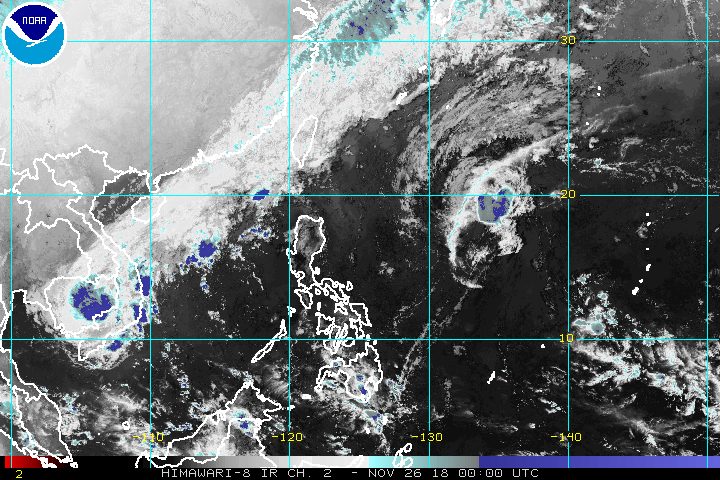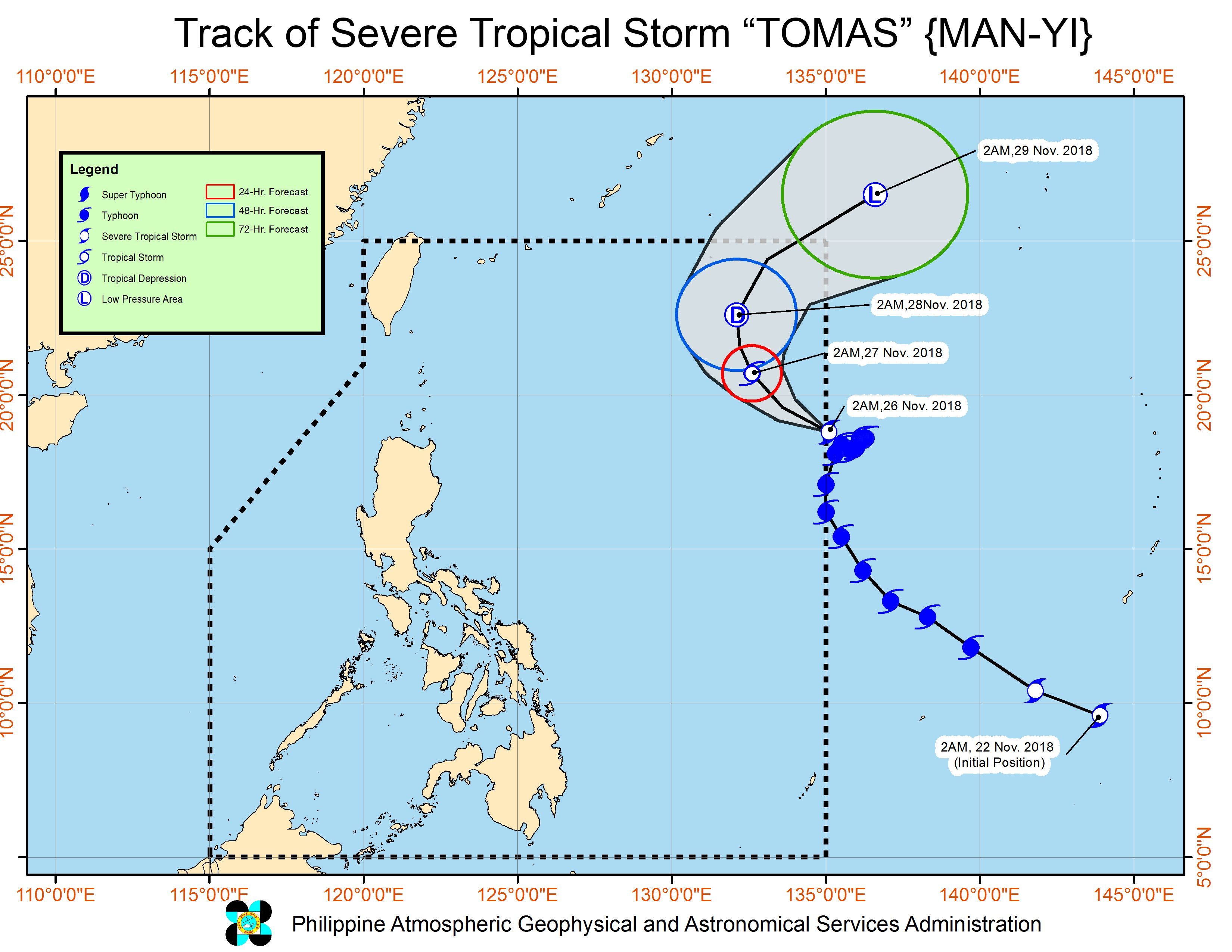SUMMARY
This is AI generated summarization, which may have errors. For context, always refer to the full article.

What’s the weather like in your area? Report the situation through Rappler’s Agos or tweet us at @rapplerdotcom.
MANILA, Philippines – Tomas (Man-yi) weakened from a typhoon into a severe tropical storm before dawn on Monday, November 26, as it reentered the Philippine Area of Responsibility (PAR).
Tomas had first entered PAR on Friday evening, November 23, remaining just near the boundary. Its center then shifted outside PAR, exiting on Saturday morning, November 24.
In a bulletin issued 4 am on Monday, the Philippine Atmospheric, Geophysical, and Astronomical Services Administration (PAGASA) said Tomas is already 1,410 kilometers east of Aparri, Cagayan.
It is moving northwest at a slow 10 kilometers per hour (km/h).
The severe tropical storm now has maximum winds of 110 km/h from the previous 130 km/h and gustiness of up to 135 km/h from the previous 160 km/h.
PAGASA Weather Specialist Aldczar Aurelio explained that Tomas weakened due to interaction with cold and dry air from the northeast monsoon or hanging amihan. It is likely to weaken further in the coming days.
Tomas is still not expected to make landfall in the Philippines.
The severe tropical storm also has no direct effect on any part of the country, so there are no areas under tropical cyclone warning signals. (READ: FAST FACTS: Tropical cyclones, rainfall advisories)
Based on Tomas’ latest forecast track, it will leave PAR for the second and final time on Wednesday, November 28.

Tomas is the Philippines’ 20th tropical cyclone for 2018. Following Tomas’ entry, the country has already hit the average number of tropical cyclones per year, with over a month still remaining in 2018. (READ: LIST: PAGASA’s names for tropical cyclones in 2018)
Meanwhile, the northeast monsoon will continue to affect Northern Luzon.
Isolated light rains are again expected in the Ilocos Region, Cordillera Administrative Region, and Cagayan Valley on Monday. PAGASA said there will be “no significant impact.”
A gale warning, however, was issued at 5 am on Monday for Batanes, Calayan, Babuyan, the northern coast of Ilocos Norte, Cagayan, Isabela, Aurora, the eastern coast of Quezon including Polillo Island, Camarines Norte, Catanduanes, the eastern coast of Camarines Sur, the eastern coast of Albay, the eastern coast of Sorsogon, Northern Samar, and Eastern Samar, due to the northeast monsoon.
Seas off those areas are rough to very rough, with wave heights reaching 2.8 meters to 4.5 meters.
PAGASA advised fishermen and others with small vessels not to set sail in areas covered by the gale warning. Larger vessels should watch out for big waves.
The rest of the country, not affected by the northeast monsoon, will only have localized thunderstorms on Monday. But flash floods and landslides are possible if the thunderstorms become severe.
PAGASA declared the start of the rainy season last June 8. – Rappler.com
Add a comment
How does this make you feel?
There are no comments yet. Add your comment to start the conversation.